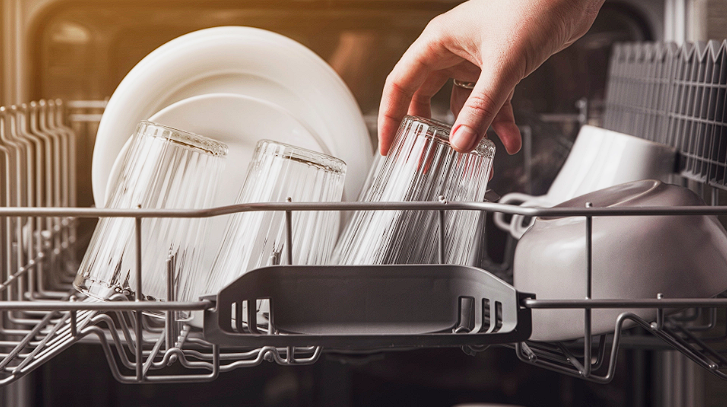How to get the most out of your dishwasher in terms of economy and durability.
Others are reading now
Household appliances significantly contribute to your energy bill. By being more energy-efficient with these devices, you can reduce your monthly electricity costs.
Home improvement site Livios consulted Pascal Tulleneers from Whirlpool for tips on using your dishwasher sustainably and prolonging its life.
Maximize Load Efficiency
Limiting dishwasher use is a straightforward way to conserve energy.
“Turning on the dishwasher only when it’s fully loaded is the simplest energy-saving measure,” Tulleneers explains.
Also read
“Organize plates, bowls, and glasses logically for the best cleaning results. Arrange items neatly side by side, invert cups, and consider plate height to avoid obstructing the spray arms.”
To Pre-rinse or Not to Pre-rinse?
Dishwashers are designed to save you time and effort, eliminating the need for pre-rinsing. “Half of people generally rinse their plates by hand before loading them into the dishwasher, but that defeats the purpose. Simply clearing the plates well is sufficient,” says Tulleneers.
Foregoing pre-rinsing also conserves water, enhancing sustainability. “Modern dishwashers use just nine or ten liters of water—often less than hand washing,” Tulleneers adds. “Pre-rinsing only wastes additional water.”
While pre-rinsing isn’t necessary, regular filter cleaning is essential. “We advise checking the dishwasher’s filters weekly,” the expert recommends. “Typically, there are two filters: one for large particles and a microfilter. Maintaining both helps prevent clogs, conserving water and extending your appliance’s life.”
Maintaining Your Dishwasher
Periodic deep cleaning ensures longevity. “Twice a year, run the machine empty on a warm water cycle,” Tulleneers advises. “Use a cleaner specifically designed for dishwashers to keep your machine looking and operating like new.”
Running occasional high-temperature washes is beneficial. “The standard eco program is mandated by Europe, but we suggest a high-temperature cycle every two weeks for superior cleaning and a cleaner dishwasher overall,” says Tulleneers.
Considering a New Dishwasher?
When purchasing a new dishwasher, the energy label is crucial. “Higher-rated energy labels mean higher upfront costs but greater efficiency across the board,” he notes.
“Carefully read the manual of a new dishwasher to understand its features, meanings, and optimal use,” Tulleneers concludes. “Adjust settings based on your region’s water hardness to prevent long-term issues.”








